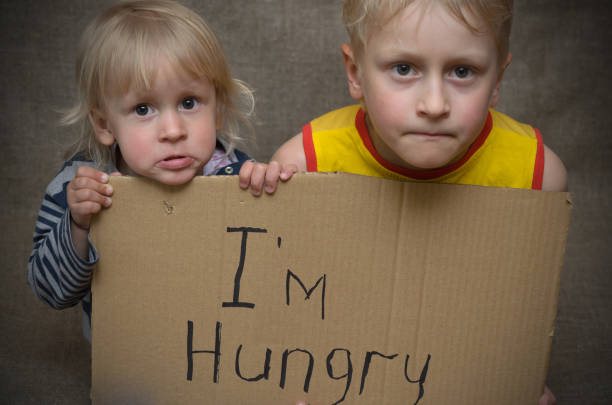
A hungry boy and a girl with a cardboard tablet with the inscription I'm hungry .
In recent years, Northern Ireland has witnessed a concerning increase in child poverty, a trend that threatens the well-being of its youngest residents and the future of the region. This growing issue not only undermines the potential of children but also poses significant challenges to society as a whole.

Understanding Child Poverty
Child poverty refers to the condition where children live in families with incomes below the poverty line, impacting their ability to access basic necessities such as food, clothing, healthcare, and education. In Northern Ireland, the rise in child poverty can be attributed to a combination of factors including economic stagnation, unemployment, and cuts to social welfare programs.
Economic and Social Factors
The economic landscape in Northern Ireland has been marked by slow growth and limited job opportunities, particularly in traditionally strong sectors such as manufacturing. This has resulted in increased unemployment and underemployment, particularly affecting families with children. Additionally, austerity measures and cuts to social welfare have further strained family budgets, leaving many struggling to make ends meet.
Impact on Children
The consequences of child poverty are far-reaching. Children growing up in poverty are more likely to face educational challenges, health issues, and limited access to extracurricular activities. This can lead to a cycle of poverty, where the lack of resources and opportunities in childhood affects long-term prospects and future earning potential.
Community and Government Response
Addressing child poverty requires a coordinated effort from both the government and community organizations. Initiatives such as increasing access to affordable childcare, providing free school meals, and enhancing educational support can make a significant difference. Moreover, policies aimed at job creation and fair wages are crucial to lifting families out of poverty.
The Path Forward
Breaking the cycle of child poverty in Northern Ireland demands a commitment to long-term solutions. By investing in education, healthcare, and social services, and by creating a more inclusive economy, Northern Ireland can work towards a future where every child has the opportunity to thrive. It is crucial for policymakers, community leaders, and citizens to collaborate and prioritize the needs of children, ensuring that they are not left behind.
Child poverty is not just a statistic; it represents real lives and future potential. By addressing this issue with urgency and compassion, Northern Ireland can pave the way for a brighter, more equitable future for all its children.




